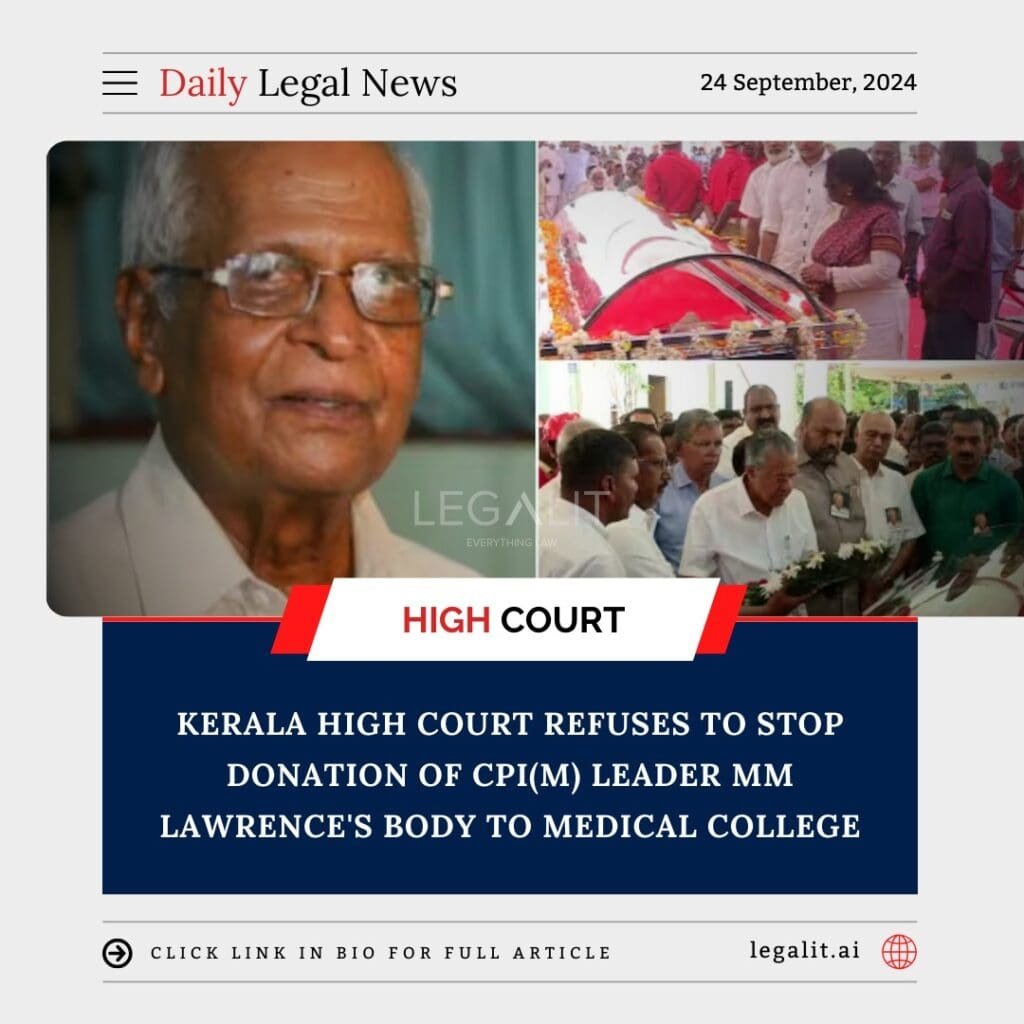
In a significant decision, the Kerala High Court has rejected a plea seeking to prevent the donation of the body of veteran CPI(M) leader MM Lawrence to a medical college after his death. The Court’s ruling reaffirmed the right to body donation for medical research and education, highlighting that such donations serve a greater public interest.
1. Plea to Prevent Body Donation
The plea was filed by individuals opposing the posthumous donation of Lawrence’s body to a medical college for anatomical study and research. The petitioners argued that the act could hurt certain sentiments and contended that there were personal and ethical concerns about the process. However, the Court found these claims to be unsubstantiated and dismissed the petition.
2. Body Donation: A Matter of Personal Choice
The Kerala High Court emphasized that body donation is a matter of personal choice and that an individual has the right to decide what should happen to their body after death. In this case, MM Lawrence had expressed his desire for his body to be donated for medical education, a decision that the Court respected as an exercise of personal autonomy. The judgment underscored the importance of honoring such wishes, especially when they contribute to society in a meaningful way.
3. Public Interest and Medical Research
The Court also highlighted the importance of body donations in advancing medical education and research. In its ruling, the Court noted that the bodies donated for medical purposes play a crucial role in helping students and professionals gain a deeper understanding of human anatomy, which ultimately benefits the public by improving healthcare services. The Court ruled that preventing the donation would be against the public interest, as it would hinder the progress of medical knowledge and training.
4. Dismissal of Ethical Concerns
The petitioners had raised ethical concerns about the donation, suggesting that it might offend certain communities or sentiments. However, the Court found these claims to be vague and lacking a legal basis. The judgment stated that there was no evidence to suggest that body donation, in general, or in this specific instance, violated any ethical or legal norms. The Court reaffirmed that body donation for medical education is widely accepted and regulated in India, and there is no scope for religious or personal sentiments to override the donor’s explicit wishes.
5. Legacy of MM Lawrence
MM Lawrence, a respected leader of the Communist Party of India (Marxist), had a long history of public service and was known for his commitment to social justice and welfare initiatives. His decision to donate his body is seen as an extension of his lifelong dedication to the public good. The High Court, in its judgment, acknowledged his contribution and stated that his body donation would be an act of altruism, benefiting future generations of medical professionals.
The Kerala High Court’s refusal to stop the body donation of CPI(M) leader MM Lawrence reinforces the principle of individual autonomy in deciding posthumous matters and underscores the public value of body donations in the field of medical education. The ruling marks an important affirmation of the legal and ethical framework surrounding body donations, ensuring that such contributions to medical science are respected and protected from unwarranted objections.